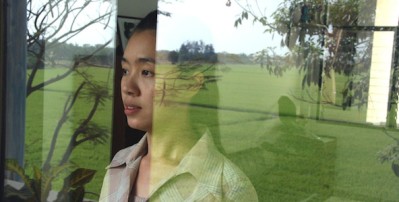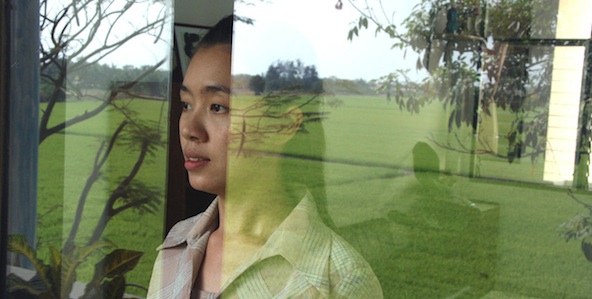REVIEW: ‘Syndromes and a Century’ finds poetry in simple love story

Apichatpong Weerasethakul, the Thai indie director, will receive a retrospective of his films at New York City’s IFC Center in advance of his new movie, Cemetery of Splendor, and the theatrical premiere of Mekong Hotel. Included among the retrospective is the quietly moving Syndromes and a Century from 2006. The film is a careful study of a few medical professionals working in the Thai countryside and then Bangkok, and within its carefully realized scenes is a cinematic beauty unparalleled in its ability to move audience members.
In many ways, Syndromes is like two films coming together into one dramatic statement. The first part centers on a few story lines, including a budding relationship between a doctor and a florist, a monk who befriends a musical dentist and the several characters who come and go from the hospital’s surroundings. Weerasethakul is a master at letting scenes linger and build in emotion. In this early film from his career, the camera stays stationary for several seconds (sometimes minutes) with no edits or zooms. He portrays these characters from afar with few closeups, and this allows the hospital and the countryside to become a character, almost like a theatrical setting. Oftentimes he’ll even have dialogue play in voiceover as the camera remains steady on a natural scene or fluorescent-lit hallway.
This lack of directorial flourishes allows a fine focus on the exquisite characterizations, which are nicely drawn by Weerasethakul and the cast of actors. Dr. Nohng (Jaruchai Iamaram), Off (Putthithorn Kammak), Noom (Sophon Pukanok), Dr. Toey (Nantarat Sawaddikul) and Pa Jane (Jenjira Pongpas) enter and exit the picture living real lives. There’s no real beginning or end to the scenes, and the plot never crescendoes to a climax. Instead Weerasethakul is determined to capture realism and organic development among his creations, and this lofty goal is wondrously achieved.
The deeper themes of Syndromes will cause some welcome head scratches. There’s a definite divide in the film between the medical and cultural practices in the countryside (part one) and metropolitan area (part two). Both areas still value the role of monks in society, and both areas depict institutions that help the locals with their health. However, the stark whiteness of the city facility somehow looks too fake and sterile, especially when compared to its country cousin. The country facility has a welcoming quality, a neighborhood doctor feel.
The people, however, in both facilities are essentially the same. There’s no explanation of why the doctors seem to repeat their actions and dialogue in both settings, except to show the audience the way these events may unfold in different surroundings. Weerasethakul stays dedicated to leaving the audience to its own interpretations (he did this similarly in Uncle Boonmee who Can Recall his Past Lives, his most celebrated film).
In the city environment, there’s a funny scene in which doctors sneak a few swigs of alcohol while on break. Another scene depicts Off, a patient who throws a racquetball in the hallway and seems distant when asked a question, and this is perhaps because of his injury. In the country part, a lovely picnic allows for for some contemplation on the natural surroundings.
In both places, connections are made between the characters, and no one is villainous. There’s an easygoing, almost bucolic type of living on display, and its simplicity is somewhat jarring. Perhaps Weerasethakul is trying to show that in today’s increasingly connected and aloof world, scenes of human connection are still possible and should be cherished. Perhaps the best medicine is an invitation to converse.
By John Soltes / Publisher / John@HollywoodSoapbox.com
- Syndromes and a Century
- In Thai with English subtitles
- 2006
- Written and directed by Apichatpong Weerasethakul
- Starring Jaruchai Iamaram, Putthithorn Kammak, Sophon Pukanok, Nantarat Sawaddikul and Jenjira Pongpas
- Running time: 105 minutes
- Rating:





